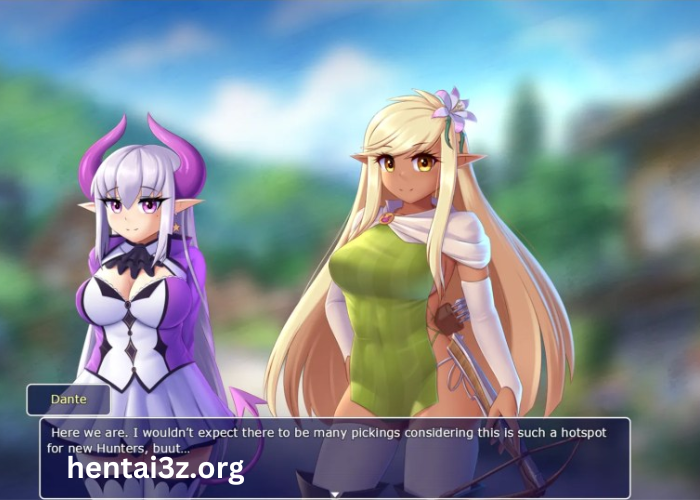Hentai manga, a subgenre of Japanese comic books and graphic novels, has long been a niche but influential part of the global manga and anime landscape. These erotic and sexually explicit works have captivated audiences worldwide, offering a unique form of adult-oriented storytelling and visual art. As the digital age has transformed the way we consume and access media, the impact of online platforms on the world of hentai manga has been profound.
In this article, we’ll explore the evolution of online platforms for hentai manga, the accessibility and convenience they provide, the increased diversity and range of content, the impact on community engagement, and the challenges and considerations facing this dynamic industry.
Evolution of Online Platforms for Hentai Manga
The advent of the internet has revolutionized the way hentai manga is produced, distributed, and consumed. Gone are the days when readers had to scour physical stores or rely on limited print publications to access these specialized works. Online platforms have emerged as the primary channels for hentai manga enthusiasts to discover, read, and engage with their favorite content.
- Digital Manga Libraries: Dedicated hentai manga platforms, such as Fakku and ExHentai, have amassed vast digital libraries, offering users a wide selection of titles spanning various genres, themes, and artistic styles. These platforms have made it easier than ever for readers to explore and discover new hentai manga works.
- Streaming and Aggregation Sites: In addition to dedicated hentai manga platforms, popular streaming and aggregation sites, like Crunchyroll and MyAnimeList, have also incorporated hentai manga into their content offerings, further expanding the accessibility and reach of these works.
- Social Media and Online Communities: The rise of social media platforms has enabled hentai manga enthusiasts to connect, share, and discuss their passion like never before. Online communities, forums, and fan groups have become vibrant hubs for exchanging recommendations, insights, and fan-created content.
Accessibility and Convenience of Online Platforms
One of the most significant impacts of online platforms on hentai manga reading is the increased accessibility and convenience they provide. Traditional print distribution channels often posed challenges for readers, such as limited availability, geographic restrictions, and the stigma associated with purchasing adult-oriented content. Online platforms have overcome these barriers, offering a more seamless and discreet reading experience.
- Instant Access: With just a few clicks, hentai manga readers can access a vast library of content, available at their fingertips anytime, anywhere. This on-demand access has revolutionized the way people consume and engage with hentai manga.
- Discreet Consumption: Online platforms allow readers to access hentai manga discreetly, without the need to visit physical stores or face potential social stigma. This has made the experience more comfortable and accessible, particularly for those who may have been hesitant to explore this genre in the past.
- Personalized Recommendations: Many online platforms employ sophisticated algorithms and user data to provide personalized recommendations, helping readers discover new hentai manga titles that align with their preferences and interests.
Increased Diversity and Range of Hentai Manga
The rise of online platforms has also led to a significant expansion in the diversity and range of hentai manga available to readers. Traditional print distribution often favored mainstream or popular titles, leaving niche or experimental works underrepresented. Online platforms have democratized the hentai manga industry, allowing for a broader spectrum of content to reach and engage audiences.
- Emergence of Niche and Indie Works: Online platforms have provided a platform for independent and lesser-known hentai manga artists to showcase their unique creations, giving readers access to a wider variety of artistic styles, narratives, and themes.
- Exploration of Diverse Genres and Themes: Hentai manga readers can now explore a vast array of genres, from romantic comedies to dark psychological thrillers, as well as a wide range of themes, including LGBTQ+ representation, fetishism, and experimental storytelling.
- Global Accessibility: Online platforms have broken down geographic barriers, allowing readers from around the world to access and engage with hentai manga content, fostering a truly global community of enthusiasts.
Community and Interaction on Online Platforms
The digital landscape has also transformed the way hentai manga readers engage with the community and interact with each other. Online platforms have facilitated the creation of vibrant communities where fans can share their passion, discuss their favorite works, and even collaborate on fan-created content.
- Online Forums and Discussion Boards: Dedicated hentai manga forums and discussion boards have become hubs for passionate fans to share their insights, ask questions, and engage in lively debates about the genre, its creators, and the industry as a whole.
- Social Media Engagement: Platforms like Twitter, Reddit, and Tumblr have enabled hentai manga enthusiasts to connect with each other, share fan art, and participate in online discussions, fostering a sense of community and camaraderie.
- Fan-Created Content: The ease of content creation and distribution on online platforms has led to a surge in fan-created hentai manga, including doujinshi (self-published works), fan art, and fan fiction, further enriching the overall hentai manga ecosystem.
Impact on Traditional Print Industry
While the rise of online platforms has undoubtedly transformed the hentai manga landscape, it has also had a significant impact on the traditional print industry. As readers increasingly gravitate towards digital consumption, the print sector has had to adapt and evolve to remain relevant and competitive.
- Declining Print Sales: The convenience and accessibility of online platforms have contributed to a decline in physical hentai manga sales, as readers opt for the digital format over traditional print publications.
- Adaptation to Digital Formats: In response to this shift, many print publishers have embraced digital distribution, offering their hentai manga titles in e-book and digital formats to cater to the growing demand for online consumption.
- Collaboration with Online Platforms: Some print publishers have forged partnerships with online platforms, leveraging their reach and distribution channels to expand the visibility and accessibility of their hentai manga titles to a wider audience.
Controversies and Challenges Faced by Online Platforms
While the impact of online platforms on hentai manga reading has been predominantly positive, there are also controversies and challenges that these platforms must navigate.
- Content Moderation and Regulation: Online platforms face the ongoing challenge of moderating and regulating the content they host, ensuring compliance with local laws and addressing concerns around the depiction of explicit or potentially problematic material.
- Copyright and Intellectual Property Issues: The ease of digital distribution has also led to concerns around copyright infringement and the protection of intellectual property rights, as unauthorized distribution of hentai manga content can undermine the livelihoods of creators and publishers.
- Ethical Considerations: The accessibility and anonymity of online platforms have raised ethical debates around the consumption of hentai manga, particularly regarding the depiction of underage characters or the potential for the normalization of harmful sexual practices.
Legal and Ethical Considerations
As the hentai manga industry continues to evolve in the digital age, it is essential to address the legal and ethical considerations surrounding the production, distribution, and consumption of these works.
- Compliance with Local Laws: Online platforms must ensure that the hentai manga content they host complies with local laws and regulations, which can vary significantly across different regions and jurisdictions.
- Protection of Minors: One of the primary ethical concerns surrounding hentai manga is the potential for the depiction of underage characters in sexual situations. Online platforms must implement robust age verification systems and content moderation policies to mitigate this risk.
- Responsible Representation: The hentai manga industry should also consider the ethical implications of the content it produces, ensuring that it does not perpetuate harmful stereotypes, promote non-consensual practices, or normalize abusive behavior.
Conclusion
The impact of online platforms on the world of hentai manga has been profound, transforming the way readers discover, consume, and engage with this unique genre. From increased accessibility and convenience to the expansion of diversity and community interaction, the digital revolution has reshaped the hentai manga landscape in myriad ways.
As the industry continues to evolve, it will be crucial for online platforms, creators, and readers to navigate the complex legal and ethical considerations that come with this dynamic medium. By striking a balance between creative freedom and responsible representation, the hentai manga community can continue to thrive and captivate audiences worldwide.




